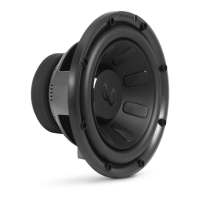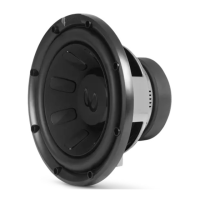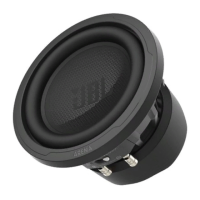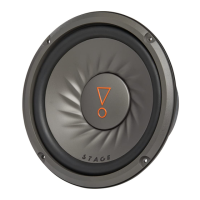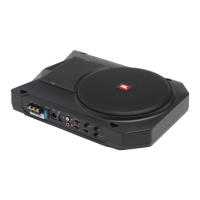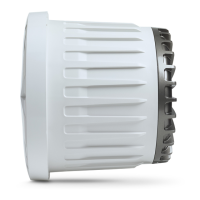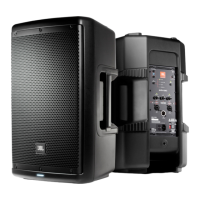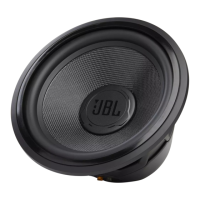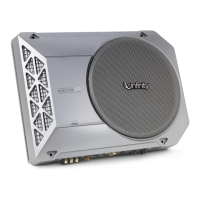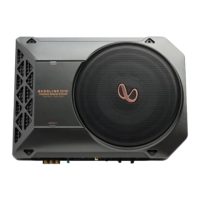Since listening and speaker locations are equally
important, the trial-and-error process can be time-
consuming. However, the sonic rewards are well worth
the time spent determining the ideal placement locations.
Remember that peaks (below the subwoofer crossover
frequency) can be minimized or eliminated by the proper
adjustment of the Concerta2 B10's Equalization controls,
but dips cannot be corrected via equalization. Therefore,
the most important objective is to find locations that result
in the minimum number (and severity) of dips. Contact
your authorized Revel dealer for assistance in
determining the proper placement of your Revel
loudspeakers and subwoofers.
After placing the B10 subwoofer(s), begin playback of a
familiar music or film source that has substantial bass
content. Listen from the primary listening position,
increasing the overall volume of the system to a
comfortable level. Adjust the Subwoofer Level (volume)
control until you obtain the desired blend of bass. Also,
test the subwoofer level by playing a recording of a deep
male voice. Setting the subwoofer level (or crossover
frequency) too high results in unnaturally “thick” or
“boomy” vocal reproduction. Bass response should not
overpower the room, and should be adjusted to achieve a
harmonious blend across the entire audible range.
If you are using a multichannel receiver or processor with
a subwoofer output, it's preferable to use the Subwoofer
Level adjustment on the processor. Set the B10 Level
control to the indicated “LFE” position.
Note: Setting the level of the subwoofer in relation to the
left and right front speakers is of critical importance
because it is essential that the subwoofer integrate
smoothly with the entire system. Setting the level too high
results in an overpowering bass response. Setting the
level too low negates the benefits of the B10 subwoofer.
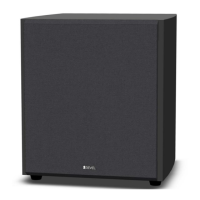
